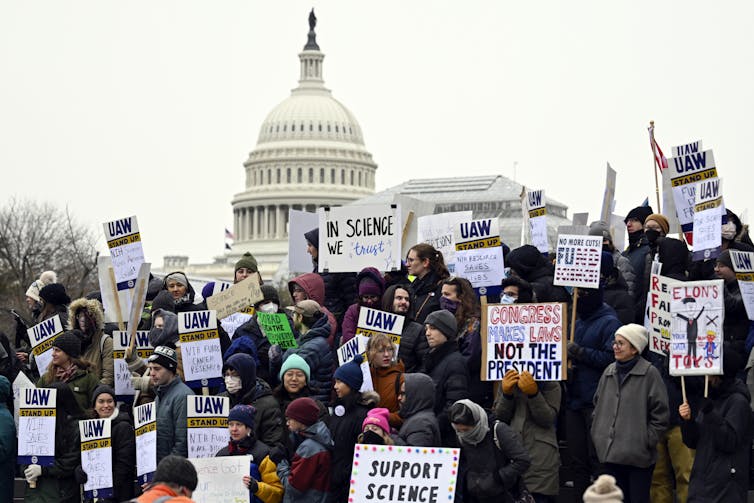Griffiths is the editor of Independent Voter News, where a version of this story first appeared.
A new report reinforces something political reform advocates and experts have been saying for years: Partisan identity is becoming the primary determinant in nearly every election.
The "Monopoly Politics" study, a biennial project of the electoral reform advocacy group FairVote, predicts the results of all 435 seats in the House long before Election Day. The 2020 version, released last week, predicted 357 "high confidence seats" with a 99.7 percent accuracy rate. The group bases its predictions on prior voting patterns, not on polling results, a methodology that has worked since FairVote began the project in 1997.
The predictions were made fully two years ahead of time, in November 2018, a startling reminder of how little competition there is in congressional contests and the consequence this has on the nation's politics. The authors say a central takeaway is the increasing role partisanship plays in the outcome of such elections.
FairVote uses a metric it calls the "incumbency bump" to gauge performance of incumbents and so-called "crossover candidates," members of Congress who represent districts that supported the other party's presidential candidate in the previous election.
In other words, it is widely assumed there is an inherent advantage to being an incumbent. FairVote measures the strength of this advantage for Democrats and Republicans who were elected in areas that traditionally vote for the "other side."
Sign up for The Fulcrum newsletter
According to the report, this advantage is shrinking, which means all the things that used to give incumbents a leg up on the opposition — money, name recognition, experience, etc — do not mean as much as the partisan-leanings of local voters.
After the 2018 midterm, 38 Democrats and just three Republicans were crossover members. And 29 of them won again this year, a further decline in an incumbency bump that has gradually dropped since peaking in 2000.
"An increase in the predictability of partisanship at the expense of incumbency advantage, even for incumbents who maintained moderate voting records, means something troubling: the identity of candidates and their campaigns are mattering less and less," the report states.
Many know the adage that "all politics is local." This means politics is more consequential to a person's daily life the closer it gets to home. It also used to also mean local values and issues shaped how voters selected candidates.
To various extents, that still holds true. But for several years now, the divide between Republicans and Democrats at the national level has seeped down to shape trends at a local level.
This nationalization of politics is another warning sign that, as the divide between the parties expands, the state of elections will worsen: more candidates favoring divisive behavior to the detriment of their constituents and the country, and a further reduction in the number of candidates pledged to bipartisanship and moderation.
"If Americans feel as if they are split into red and blue camps more than ever, or that there's no room for cross-partisan dialogue, there's a very clear systemic reason for that," said FairVote President and CEO Rob Richie. "Our elections fundamentally reward partisanship. We will not be able to clear this hurdle and come together as a nation until we are able to enact the reforms ... that ensure Americans are more truly represented."
He pointed to legislation that's a top goal of his group, which has so far gone nowhere in Congress. Dubbed the Fair Representation Act, it seeks to end hyper-polarization in Congress by remaking the way the House is constituted: five or six members each representing a fewer number of congressional districts, and chosen in ranked-choice elections.
"Multi-winner districts allow more voters to participate in meaningfully competitive elections, and the vast majority of voters of both parties would be able to help elect candidates from their districts who share their views," FairVote states. "This change would roughly triple the number of voters able to participate in competitive House elections."
Visit IVN.us for more coverage from Independent Voter News.























